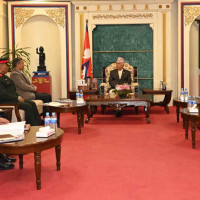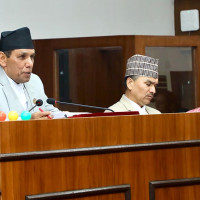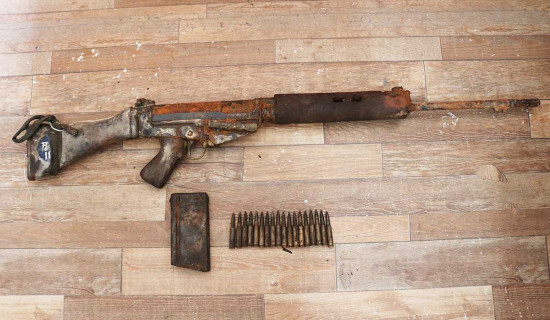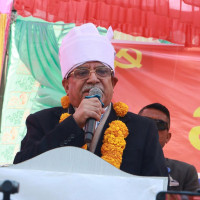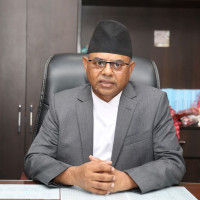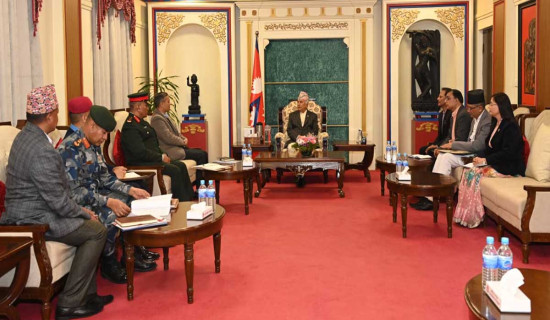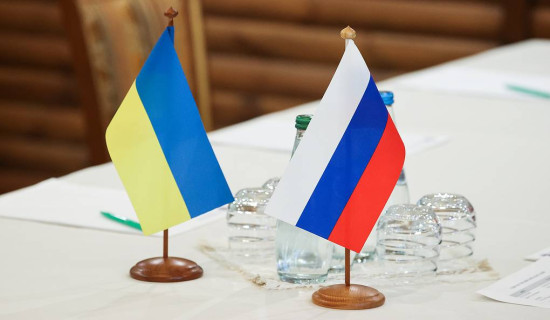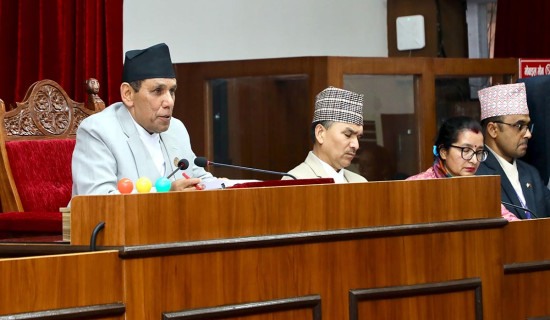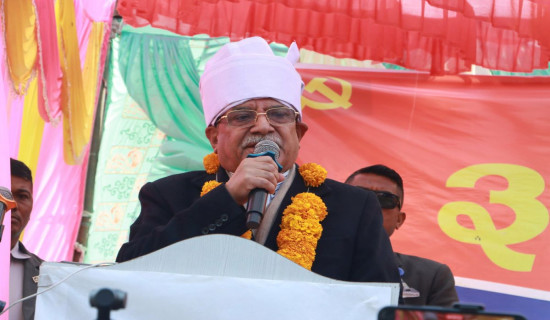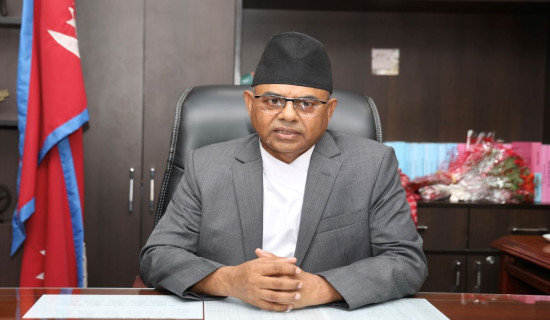- Saturday, 14 February 2026
140-MW Tanahun Hydropower sees breakthrough of headrace tunnel
Tanahun, March 31: The under-construction 140-megawatt Tanahun Hydroelectricity Project witnessed a breakthrough in its headrace tunnel. The reservoir-based project utilizes water from the Seti River, flowing along the border of Rhishing Rural Municipality and Byas Municipality-5 in Tanahun.
Kulman Ghising, the Managing Director of the Nepal Electricity Authority (NEA), and Gopal Prasad Sigdel, the Secretary at the Ministry of Energy, Water Resources, and Irrigation, jointly initiated the detonation for the tunnel breakthrough today.
This tunnel, part of Package 2 of the project, spans 1,493 meters from its intake point. With a diameter of 7.4 meters, the tunnel will be lined with concrete. The water supplied through the tunnel will be collected in an underground powerhouse through a 213-meter penstock.
During the 'tunnel breakthrough ceremony' held on Sunday, Secretary Sigdel expressed satisfaction with the project's progress, which has exceeded expectations. He urged all bodies concerned to ensure timely construction of the main dam site.
NEA Managing Director Ghising shed light on the significance of reservoir-based projects in addressing power demand and supply imbalances during dry seasons. He called for cooperation from all stakeholders to ensure the timely completion of the project.
Kiran Kumar Shrestha, Managing Director of Tanahun Hydropower, the project promoter, and Shyamji Bhandari, the Project's acting chief, provided updates on the project's progress and challenges.
The project is being developed in three packages and has achieved a physical progress of 54 per cent thus far. Overall construction is expected to be completed by mid-July, 2026.
Under Package 1, construction is underway for the foundation of the main dam site and a temporary concrete dam approximately 40 meters tall, which will divert river water during the dam construction period.
The total estimated cost of the project is US dollars 505 million, with funding from various sources including 150 million from the Asian Development Bank (ADB), 184 million from the Japan International Cooperation Agency (JICA), 85 million from the European Investment Bank, and 86 million from the Nepal Government/NEA. (RSS)




